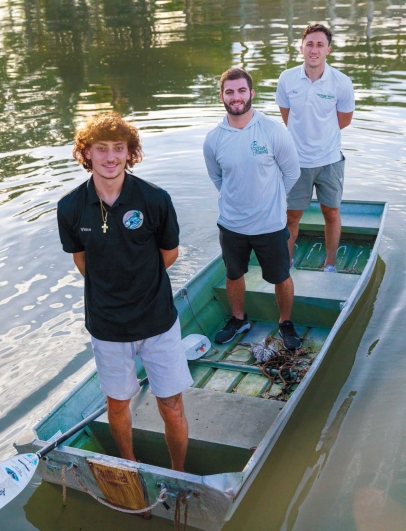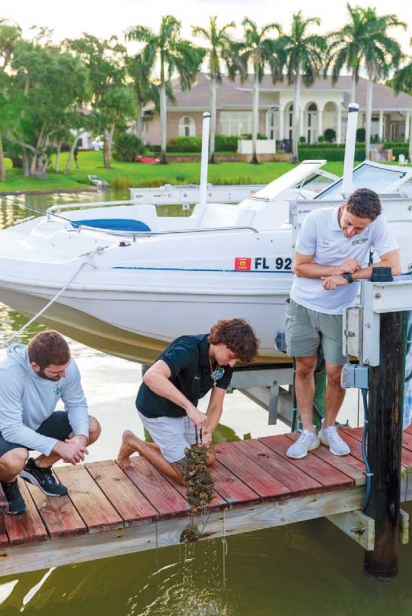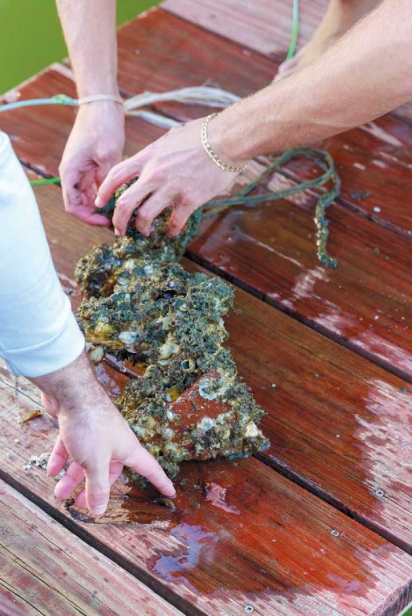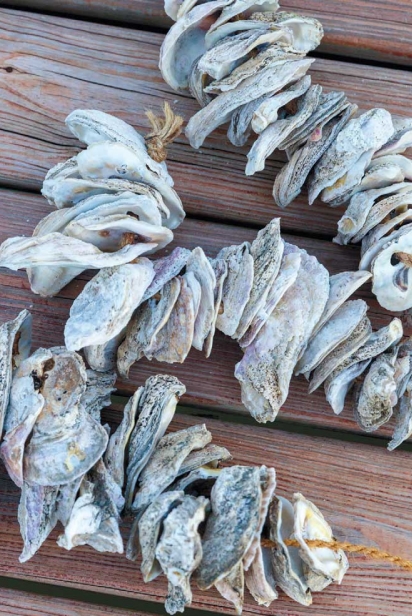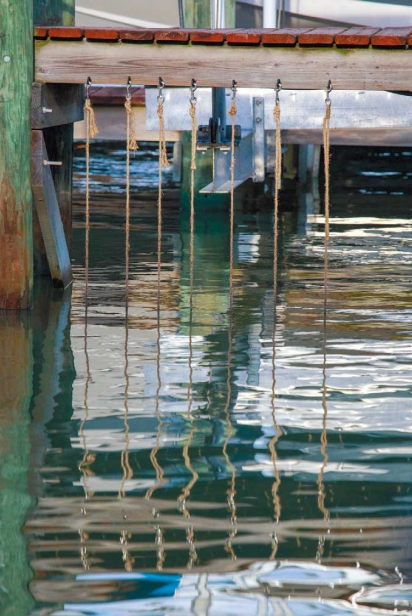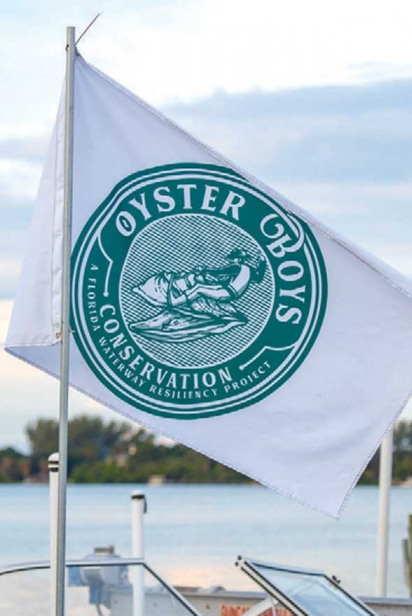Oyster Boys
A record 1,101 Florida manatees died in 2021. When will it end?
One of the Tampa Bay Times’ first headlines of the new year, the plea opened a story on mass starvation among Florida’s manatees due to depletion of their underwater grazing pastures, a human-fueled domino effect of red tide.
Dominic and Vince Marino, ages 27 and 20, don’t deal in rhetorical questions when it comes to their Florida turf. The woodlands of East Bradenton, the beaches of Siesta Key, and the waterways feeding into Blackburn Bay—the brothers have called all these places home.
“We’ve got a taste of both worlds that make Florida so beautiful: the woods and the saltwater,” says the elder Marino. “Growing up around that, it’s just made us who we are. The 941 area code definitely means a lot to my brother and me.”
They’ve both played sports at the college level, so maybe it’s also the Marino boys’ inner athlete that enables them to size up an adversary— even one that’s big as red tide—and think, Game on.
“We’re passionate about protecting Florida,” Marino says. “We understand what the human parasite can do to its host. More people are coming to Florida by the day, so it’s important that we find ways to try and mitigate that damage.”
To that end, the Marino brothers founded Oyster Boys Conservation (OBC), the newest nonprofit on the block to tackle the environmental crisis in Florida’s waters through innovation, passion, and partnership. The Oyster Boys’ posse includes Kristopher Harris, a Tallahassee-based real estate developer and lobbyist who garnered the Florida Department of Agriculture’s endorsement for OBC; Skyler Windmiller, a Kansas business leader keen on making a difference for the planet; Matt DeMasi, an advisor with the Atlas Insurance Agency in Sarasota; and Colton Lightner, a financial planner for the Venice firm FourThought Private Wealth. When he’s not championing the Oyster Boys’ cause, Marino works as a senior living administrator at Heritage Oaks of Englewood. Vince recently chose to pivot from playing college basketball to pursue conservation, restoration, and natural resource management—with OBC opening a path to score all kinds of environmental alley-oops.
“We’ve been meeting weekly since January,” Marino says of the OBC board and consulting team, “and I admire these guys because they’re all accomplished businessmen and family men who have sacrificed so much time throughout this year. I credit them for how far we’ve come already.”
While the manatee is the project’s spirit animal, the oyster— OBC’s seemingly humble avatar—is essential to the project’s frontline operations. A single adult oyster can filter out pollutants, including the stuff that feeds red tide, from up to 50 gallons of seawater per day. Once plentiful in these parts, local oyster populations have declined massively due to the destruction of oyster reefs; as they disappear, a multitude of other marine species start to struggle for oxygen, food, and shelter—the bare necessities for survival.
“We saw the problem and asked, ‘OK, what’s the solution? How can we help?’” Marino says. The area’s leading players in cleaner waters, including both the Sarasota and Tampa Bay estuary programs, Suncoast Waterkeeper, and All Clams on Deck, steered OBC toward vertical oyster garden (VOG) cultivation. With input from Kevin Claridge, head of sponsored research and coastal policy programs at the Mote Marine Laboratory and Aquarium, OBC began manufacturing VOGs from recycled oyster shells and natural-fiber rope in May. Within three months, OBC installed 100 VOGs under a community dock in Osprey. Continued support and expertise from Mote and Stocking Savvy Environmental Consulting will empower OBC to monitor the VOGs’ development and to collect water quality data.
“We have anecdotal evidence of how the surrounding ecosystem has responded to the VOGs,” Marino says. “When our 25th VOG went in the water, I kid you not, 30 near-mature snook just popped up out of nowhere. We’ve been living on this dock for half our lives, and never has that happened.”
OBC accepts donations of any amount to support ongoing VOG installations and water cleanup expeditions. Next, OBC plans to offer sponsorship packages for community members with dock space to host VOGs. While the VOG is simple tech at its finest, OBC seeks to improve waterway resiliency via a different, much more advanced technology: nonfungible tokens, better known by the acronym NFT. OBC has pledged to mint 1,101 NFTs—one in honor of every manatee that died in 2021—and give them away to anyone who wants a digital “badge of honor” representing support for OBC’s mission. Their NFT comes in the shape of an adorable cartoon manatee named Manny. Each unique #MannyNFT sports a cool costume and accessories that shout “living my best life.” Your Manny might come out puffing a Cuban cigar, flashing a gold grill, or ready to pour a shot of Hennessy. OBC sees a serious need for local water cleanup and says, seriously—this is where the party’s at. We’ll drink to that.


